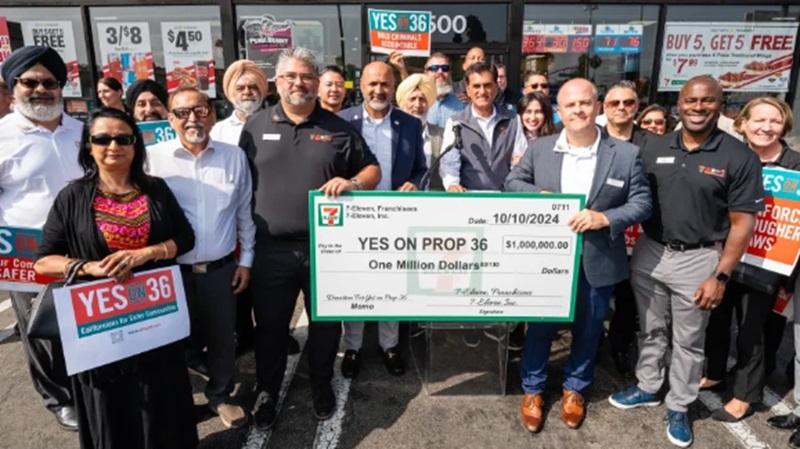One of the most anticipated propositions in the November 5 election is Proposition 36. The key point of Proposition 36 is to reclassify theft and drug possession, currently considered misdemeanors, as felonies.
This proposition embodies Californians’ concerns and anger over the spread of retail theft and the proliferation of fentanyl, which have surged like a post-pandemic epidemic and show no signs of abating.
In particular, theft has become a defining feature of daily life in California’s major cities since the pandemic. Initially, retail stores were the primary targets, but this trend has expanded to residential areas and vehicles. The perpetrators have evolved from a few individuals to organized, specialized groups.
A noteworthy point is that just ten years ago, in the 2014 election, Proposition 47—which starkly contrasts with Proposition 36—was passed. Proposition 47 reclassified two types of crimes as misdemeanors: non-violent property crimes involving less than $950 and simple drug possession. Consequently, theft involving goods valued at under $950 became a misdemeanor, making retail stores easy targets.

At the same time, Los Angeles County District Attorney George Gascón advocated for judicial reform, eliminating the system where arrested individuals needed to post bail to be released and establishing a principle of non-detention investigations for non-violent crimes. Combined, these measures meant that in LA, those arrested for thefts under $950 were released without posting bail. As a result, LA became infamous for rampant theft, especially after the pandemic.
The existence of Proposition 47 and Proposition 36, two opposing measures within a decade, illustrates how dramatically the reality in California has changed. Proposition 36 can be seen as Californians’ acknowledgment that while the lenient approach to crime may have seemed right back then, it no longer works today.
Governor Gavin Newsom and some other politicians and officials oppose this new proposition. They argue that reverting misdemeanors to felonies would lead to an increase in incarceration rates and correctional expenses, potentially straining the state’s budget. Their point is valid; Proposition 47 was introduced precisely because of overcrowded correctional facilities.
According to Proposition 36, repeat offenses of theft and drug possession would be classified as felonies. It also includes a mandatory treatment provision for drug possession, which, if not completed, could result in up to three years in prison. Penalties for possessing fentanyl and loaded firearms would also be strengthened.
Ultimately, this would increase the number of inmates and necessitate the expansion of correctional facilities. Expanding these facilities would require higher taxes, and without tax increases, California could find itself back at square one, as it was a decade ago when Proposition 47 passed.
While it is understandable that politicians and administrators are grappling with budgetary constraints and practical realities, theft cannot become an everyday part of life in California. Proposition 36 is the voters’ urgent call for this issue to be taken seriously.
Voters have pressured authorities to provide solutions through public opinion until now. With those efforts failing to bring results, they are now turning to legislative measures to ensure action. This sense of urgency embedded in the proposition must be recognized.
Regardless of the arguments for or against this bill or its outcome, the authorities must acknowledge the seriousness of the issue and strive to implement realistic policies. The inclusion of fentanyl in the list of punishable substances must also be taken seriously.
Officials should not feel relieved if the bill fails or solely focus on budgetary issues if it passes. The mismanagement of funds in homelessness policies must be scrutinized. Budget leaks and policy confusion should be closely examined to devise practical and effective measures.
By Yoohoi Ahn [ahn.yoohoi@koreadaily.com]
The author is an editor in the newsroom of the Korea Daily.


![Deeper-I, Efinix sign deal to develop world’s first AI-FPGA single-chip solution Ikuo Nakanishi, left, vice president of sales at Efinix and Lee Sanghun, right, CEO of Deep-I pose for a photo after signing MOU on March 26. [Provided by Deeper-I]](https://www.koreadailyus.com/wp-content/uploads/2025/04/0401-DeeperI-100x70.png)

